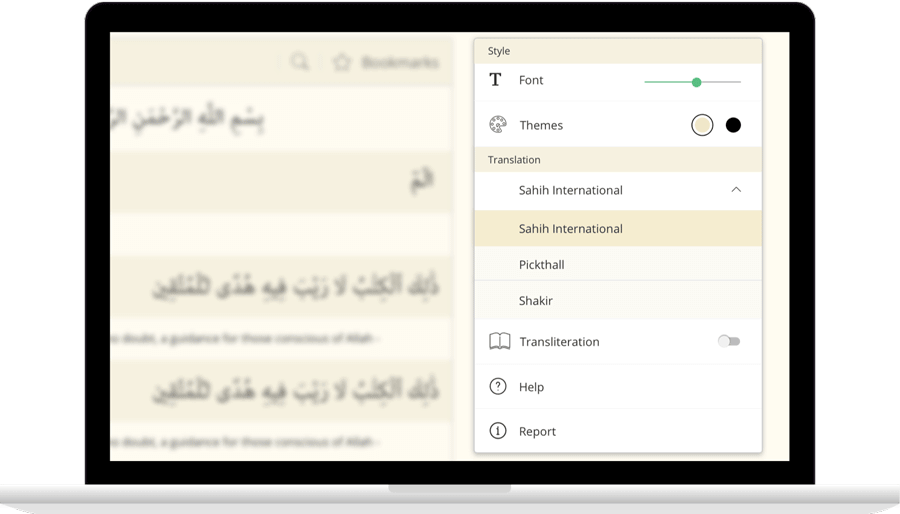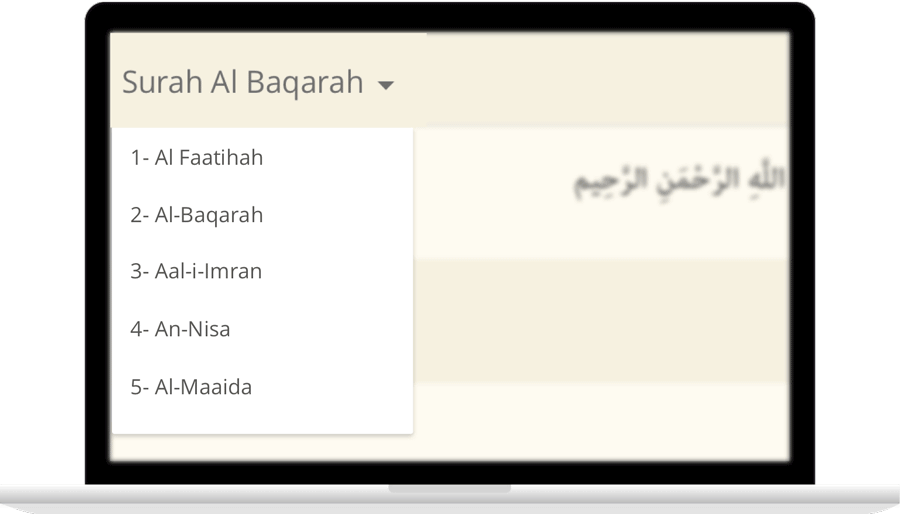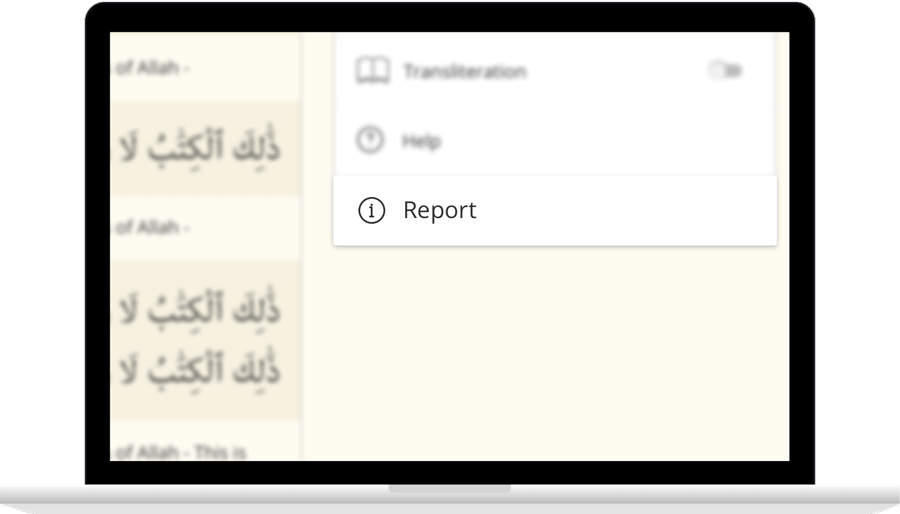Oku Surat MumtahanaSure okuma
وَإِن فَاتَكُمْ شَىْءٌ مِّنْ أَزْوَٰجِكُمْ إِلَى ٱلْكُفَّارِ فَعَاقَبْتُمْ فَـَٔاتُوا۟ ٱلَّذِينَ ذَهَبَتْ أَزْوَٰجُهُم مِّثْلَ مَآ أَنفَقُوا۟ وَٱتَّقُوا۟ ٱللَّهَ ٱلَّذِىٓ أَنتُم بِهِۦ مُؤْمِنُونَ
Wain fatakum shayon min azwajikum ila alkuffari faAAaqabtum faatoo allatheena thahabat azwajuhum mithla ma anfaqoo waittaqoo Allaha allathee antum bihi muminoona
«وإن فاتكم شيء من أزواجكم» أي واحدة فأكثر منهن أو شيء من مهور بالذهاب «إلى الكفار» مرتدات «فعاقبتم» فغزوتم وغنمتم «فآتوا الذين ذهبت أزواجهم» من الغنيمة «مثل ما أنفقوا» لفواته عليهم من جهة الكفار «واتقوا الله الذي أنتم به مؤمنون» وقد فعل المؤمنون ما أمروا به من الإيتاء للكفار والمؤمنين ثم ارتفع هذا الحكم.
يَٰٓأَيُّهَا ٱلنَّبِىُّ إِذَا جَآءَكَ ٱلْمُؤْمِنَٰتُ يُبَايِعْنَكَ عَلَىٰٓ أَن لَّا يُشْرِكْنَ بِٱللَّهِ شَيْـًٔا وَلَا يَسْرِقْنَ وَلَا يَزْنِينَ وَلَا يَقْتُلْنَ أَوْلَٰدَهُنَّ وَلَا يَأْتِينَ بِبُهْتَٰنٍ يَفْتَرِينَهُۥ بَيْنَ أَيْدِيهِنَّ وَأَرْجُلِهِنَّ وَلَا يَعْصِينَكَ فِى مَعْرُوفٍ فَبَايِعْهُنَّ وَٱسْتَغْفِرْ لَهُنَّ ٱللَّهَ إِنَّ ٱللَّهَ غَفُورٌ رَّحِيمٌ
Ya ayyuha alnnabiyyu itha jaaka almuminatu yubayiAAnaka AAala an la yushrikna biAllahi shayan wala yasriqna wala yazneena wala yaqtulna awladahunna wala yateena bibuhtanin yaftareenahu bayna aydeehinna waarjulihinna wala yaAAseenaka fee maAAroofin fabayiAAhunna waistaghfir lahunna Allaha inna Allaha ghafoorun raheemun
«يا أيها النبي إذا جاءك المؤمنات يبايعنك على أن لا يشركن بالله شيئا ولا يسرقن ولا يزنين ولا يقتلن أولادهن» كما كان يفعل في الجاهلية من وأد البنات، أي دفنهن أحياء خوف العار والفقر «ولا يأتين ببهتان يفترينه بين أيديهن وأرجلهن» أي بولد ملقوط ينسبنه إلى الزوج ووصف بصفة الولد الحقيقي، فإن الأم إذا وضعته سقط بين يديها ورجليها «ولا يعصينك في» فعل «معروف» هو ما وافق طاعة الله كترك النياحة وتمزيق الثياب وجز الشعور وشق الجيب وخمش الوجه «فبايعهن» فعل ذلك صلى الله عليه وسلم بالقول ولم يصافح واحدة منهن «واستغفر لهن الله إن الله غفور رحيم».
يَٰٓأَيُّهَا ٱلَّذِينَ ءَامَنُوا۟ لَا تَتَوَلَّوْا۟ قَوْمًا غَضِبَ ٱللَّهُ عَلَيْهِمْ قَدْ يَئِسُوا۟ مِنَ ٱلْءَاخِرَةِ كَمَا يَئِسَ ٱلْكُفَّارُ مِنْ أَصْحَٰبِ ٱلْقُبُورِ
Ya ayyuha allatheena amanoo la tatawallaw qawman ghadiba Allahu AAalayhim qad yaisoo mina alakhirati kama yaisa alkuffaru min ashabi alquboori
«يا أيها الذين آمنوا لا تتولوا قوما غضب الله عليهم» هم اليهود «قد يئسوا من الآخرة» من ثوابها مع إيقانهم بها لعنادهم النبي مع علمهم بصدقه «كما يئس الكفار» الكائنون «من أصحاب القبور» أي المقبورين من خير الآخرة، إذ تعرض عليهم مقاعدهم من الجنة لو كانوا آمنوا وما يصيرون إليه من النار.
سَبَّحَ لِلَّهِ مَا فِى ٱلسَّمَٰوَٰتِ وَمَا فِى ٱلْأَرْضِ وَهُوَ ٱلْعَزِيزُ ٱلْحَكِيمُ
Sabbaha lillahi ma fee alssamawati wama fee alardi wahuwa alAAazeezu alhakeemu
«سبح لله ما في السماوات وما في الأرض» أي نزهه فاللام مزيدة وجيء بما دون من تغليبا للأكثر «وهو العزيز» في ملكه «الحكيم» في صنعه.
يَٰٓأَيُّهَا ٱلَّذِينَ ءَامَنُوا۟ لِمَ تَقُولُونَ مَا لَا تَفْعَلُونَ
Ya ayyuha allatheena amanoo lima taqooloona ma la tafAAaloona
«يا أيها الذين آمنوا لم تقولون» في طلب الجهاد «ما لا تفعلون» إذ انهزمتم بأُحد.
كَبُرَ مَقْتًا عِندَ ٱللَّهِ أَن تَقُولُوا۟ مَا لَا تَفْعَلُونَ
Kabura maqtan AAinda Allahi an taqooloo ma la tafAAaloona
«كبر» عظم «مقتا» تمييز «عند الله أن تقولوا» فاعل كبر «ما لا تفعلون».
إِنَّ ٱللَّهَ يُحِبُّ ٱلَّذِينَ يُقَٰتِلُونَ فِى سَبِيلِهِۦ صَفًّا كَأَنَّهُم بُنْيَٰنٌ مَّرْصُوصٌ
Inna Allaha yuhibbu allatheena yuqatiloona fee sabeelihi saffan kaannahum bunyanun marsoosun
«إن الله يحب» ينصر ويكرم «الذين يقاتلون في سبيله صفا» حال، أي صافين «كأنهم بنيان مرصوص» ملزق بعضه إلى بعض ثابت.
وَإِذْ قَالَ مُوسَىٰ لِقَوْمِهِۦ يَٰقَوْمِ لِمَ تُؤْذُونَنِى وَقَد تَّعْلَمُونَ أَنِّى رَسُولُ ٱللَّهِ إِلَيْكُمْ فَلَمَّا زَاغُوٓا۟ أَزَاغَ ٱللَّهُ قُلُوبَهُمْ وَٱللَّهُ لَا يَهْدِى ٱلْقَوْمَ ٱلْفَٰسِقِينَ
Waith qala moosa liqawmihi ya qawmi lima tuthoonanee waqad taAAlamoona annee rasoolu Allahi ilaykum falamma zaghoo azagha Allahu quloobahum waAllahu la yahdee alqawma alfasiqeena
«و» اذكر «إذ قال موسى لقومه يا قوم لم تؤذونني» قالوا: إنه آدر، أي منتفخ الخصية وليس كذلك، وكذبوه «وقد» للتحقيق «تعلمون أني رسول الله إليكم» الجملة حال، والرسول يحترم «فلما زاغوا» عدلوا عن الحق بإيذائه «أزاغ الله قلوبهم» أمالها عن الهدى على وفق ما قدره في الأزل «والله لا يهدي القوم الفاسقين» الكافرين في علمه.
وَإِذْ قَالَ عِيسَى ٱبْنُ مَرْيَمَ يَٰبَنِىٓ إِسْرَٰٓءِيلَ إِنِّى رَسُولُ ٱللَّهِ إِلَيْكُم مُّصَدِّقًا لِّمَا بَيْنَ يَدَىَّ مِنَ ٱلتَّوْرَىٰةِ وَمُبَشِّرًۢا بِرَسُولٍ يَأْتِى مِنۢ بَعْدِى ٱسْمُهُۥٓ أَحْمَدُ فَلَمَّا جَآءَهُم بِٱلْبَيِّنَٰتِ قَالُوا۟ هَٰذَا سِحْرٌ مُّبِينٌ
Waith qala AAeesa ibnu maryama ya banee israeela innee rasoolu Allahi ilaykum musaddiqan lima bayna yadayya mina alttawrati wamubashshiran birasoolin yatee min baAAdee ismuhu ahmadu falamma jaahum bialbayyinati qaloo hatha sihrun mubeenun
«و» اذكر «إذ قال عيسى ابن مريم يا بني إسرائيل» لم يقل: يا قوم لأنه لم يكن له فيهم قرابة «إني رسول الله إليكم مصدقا لما بين يديَّ» قبلي «من التوراة ومبشرا برسول يأتي من بعدي اسمه أحمد» قال تعالى «فلما جاءهم» جاء أحمد الكفار «بالبينات» الآيات والعلامات «قالوا هذا» أي المجيء به «سحر» وفي قراءة ساحر، أي الجائي به «مبين» بيِّن.
وَمَنْ أَظْلَمُ مِمَّنِ ٱفْتَرَىٰ عَلَى ٱللَّهِ ٱلْكَذِبَ وَهُوَ يُدْعَىٰٓ إِلَى ٱلْإِسْلَٰمِ وَٱللَّهُ لَا يَهْدِى ٱلْقَوْمَ ٱلظَّٰلِمِينَ
Waman athlamu mimmani iftara AAala Allahi alkathiba wahuwa yudAAa ila alislami waAllahu la yahdee alqawma alththalimeena
«ومن» أي لا أحد «أظلم» أشد ظلما «ممن افترى على الله الكذب» بنسبة الشريك والولد إليه ووصف آياته بالسحر «وهو يدعى إلى الإسلام والله لا يهدي القوم الظالمين» الكافرين.
Contact Us

Thanks for reaching out.
We'll get back to you soon.









